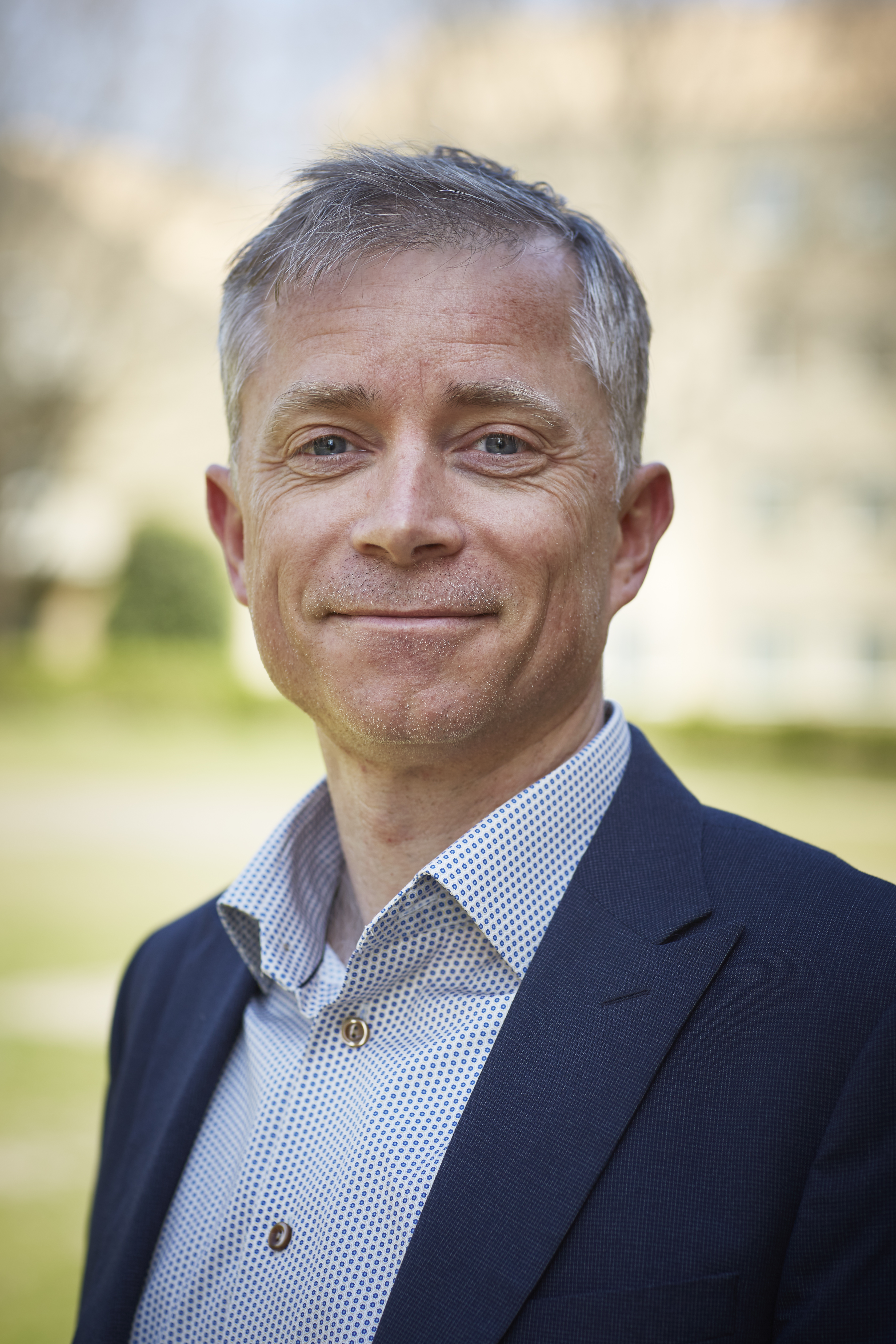EXTERNAL FUNDING COSTS FACULTIES INTERNALLY
The Faculty of Natural Sciences attracts a lot of external funding – especially from private foundations. In principle, this is very positive, but it also has some unfortunate consequences. The rule on co-funding means that it eats into basic research funding. And this presents a number of challenges, says Vice-dean David Lundbek Egholm.

For many years, AU has been working intensively to attract more external funding, as this is necessary for both finances and research. The Faculty of Natural Sciences has a good track record with this, and funding from private foundations in particular has risen significantly. So, on the face of it, the Faculty of Natural Sciences has been successful in its efforts, and David Lundbek Egholm is pleased that the faculty can collaborate with private foundations on research activities. However, there is a ‘but’!
Less talent development and basic research
The big 'but' is that co-funding is growing correspondingly, as private foundations provide very little overhead. And this is a challenge. "We're now spending a large part of our basic research funding on co-funding.
This means that we have very little left over for things like talent development, and recruitment and retention of highly qualified employees. External funding primarily goes to strategic research and temporary appointments, and we can’t build the faculty on this alone," says David Lundbek Egholm. The vice-dean believes that it is important to find ways to solve this problem, as basic research funding is sorely needed to develop the faculty and maintain its high level of research. That is also what the foundations are granting money for. This seems like a Gordian knot, but there are ways to deal with it.
Good dialogue with foundations
David Lundbek Egholm believes that the faculty is looking into a future in which we will have to give more thought to the collaborations we want to enter into, and what our budgets can bear. "Now, it all takes a little more reflection. But my experience is that the foundations will welcome this reflection before they enter into a collaboration."
The vice-dean generally thinks that the faculty has a good relationship with the foundations, and his experience is that the foundations are responsive to the challenges. He understands that the foundations can find it difficult to pay an overhead just like that – they want to know what the money is being spent on. Therefore, an important task for AU is to document the costs of externally funded projects, and these costs are currently hidden in various operations costs at AU.
"We have to document these costs and include them as part of the funding," says David Lundbek Egholm.
Tools for documenting costs
David Lundbek Egholm will provide the departments with tools to gain an overall view of project finances. "As a start to this process, we’ve developed a small document with recommendations on how much projects should have in their overhead to keep within budget. And how projects interact with department finances. It's a bit complex, because it all depends on the foundations and instruments involved, but I’m convinced that we’ll find the right solutions," he says.
The future
External funding is here to stay. But it is time to take stock and look at how we can fine tune co-funding, for example. David Lundbek Egholm believes that a model that allows for more talent development, continuity, retention and better work environment will ultimately benefit research. In the future, he would also like to see the faculty receive more EU funding and funding from Innovation Fund Denmark, which also has lower co-funding requirements.
“The desire and motivation to apply for external funding should preferably come from the bottom up and build on academic curiosity. And as a management, we have to point to the way forward and where help can be found. A success rate of less than 20 per cent hurts, because researchers waste precious time, and the many unnecessary rejections are taxing on job satisfaction. But we get lots of help from the Research Support Office and we’re working on internal quality processes. So, I feel confident that we'll be able to solve the challenges we're experiencing right now. And maintain our high level of external funding. After all, we have a very privileged starting point," concludes the vice-dean.